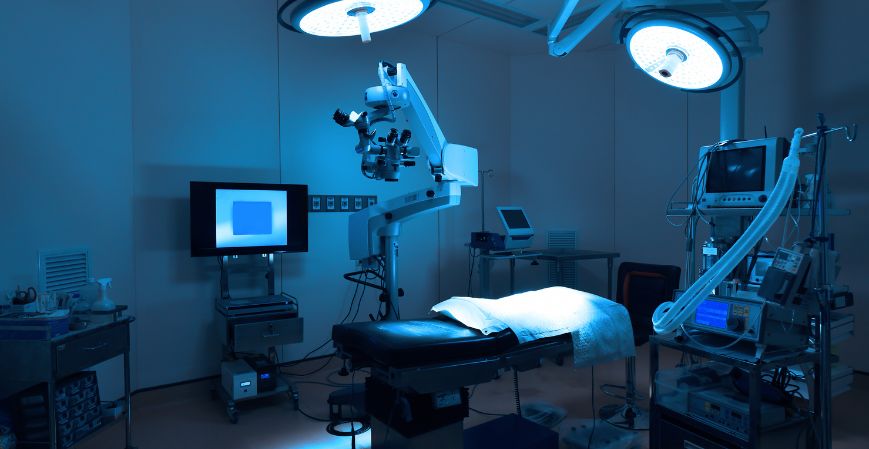The medical device outsourcing market is experiencing rapid growth, driven by the increasing demand for cost-effective manufacturing, technological expertise, and reduced time-to-market for medical products. Outsourcing allows companies to focus on their core competencies while leveraging specialized knowledge and resources offered by third-party service providers. The outsourcing of manufacturing, regulatory compliance, testing, and product development is becoming a standard practice among medical device companies looking to innovate and reduce costs.
As the healthcare industry continues to evolve, the demand for medical devices that meet stringent regulatory standards is also increasing. This has created a favorable environment for medical device outsourcing companies, as they provide essential services such as product testing, regulatory support, packaging, and distribution. Outsourcing is seen as an efficient solution for companies looking to improve their operational efficiency and accelerate the development of new devices to meet market needs.
Medical Device Outsourcing Market Size
In 2024, the global medical device outsourcing market was valued at USD 118.28 billion. This reflects the substantial demand for outsourced services within the medical device sector, driven by factors such as the need for faster product development cycles, cost control, and regulatory compliance. Outsourcing in the medical device sector spans across various functions, including design, manufacturing, testing, and post-market surveillance.
The market is projected to grow at a compound annual growth rate (CAGR) of 11.80% from 2025 to 2034, reaching an estimated value of USD 360.85 billion by 2034. This growth is attributed to the increasing adoption of outsourcing among both small and large medical device companies seeking cost-effective solutions, access to technological expertise, and improved product development timelines.
Medical Device Outsourcing Market Trends
The medical device outsourcing market is evolving with several key trends that are shaping its future:
- Technological Advancements and Innovation: Medical device outsourcing companies are increasingly adopting advanced technologies such as artificial intelligence (AI), automation, and data analytics to improve operational efficiency and enhance product development. These technologies help reduce the time required for testing, improve product quality, and enable the development of more sophisticated medical devices.
- Regulatory Compliance and Quality Assurance: With the growing complexity of global healthcare regulations, there is an increasing demand for outsourcing services that ensure medical devices meet international regulatory standards. Companies providing outsourcing services are focusing on compliance management, quality control, and certification, ensuring products meet the rigorous requirements of the FDA, European Medicines Agency (EMA), and other regulatory bodies.
- Focus on End-to-End Services: Medical device companies are increasingly looking for end-to-end outsourcing solutions that include design, development, manufacturing, testing, and post-market services. This trend is driving outsourcing providers to offer comprehensive services that reduce the need for companies to manage multiple vendors, streamlining the development process.
- Shift Towards Emerging Markets: With growing manufacturing costs in developed economies, many medical device companies are turning to emerging markets for cost-effective outsourcing solutions. Countries such as China, India, and Mexico are becoming key hubs for medical device manufacturing, offering competitive labor costs and access to a large pool of skilled workers.
- Personalized and Custom Devices: The rise in demand for personalized medicine and custom medical devices is driving the need for specialized outsourcing services. Companies are seeking outsourcing partners who can support the development of tailored solutions that meet the specific needs of patients, from prosthetics to specialized diagnostic equipment.
Medical Device Outsourcing Market Growth
The medical device outsourcing market is experiencing strong growth due to several key factors:
- Cost-Effective Manufacturing: Outsourcing manufacturing processes, particularly in regions with lower labor costs, allows medical device companies to reduce operational expenses. This cost-saving measure is especially attractive to companies working on tight budgets or those looking to invest in new product lines.
- Faster Time-to-Market: The need to bring products to market more quickly is another driving factor in the growth of the outsourcing market. By outsourcing product development, testing, and manufacturing processes, medical device companies can accelerate the time it takes to develop and launch new products, meeting the increasing demand for innovative medical technologies.
- Technological Expertise: Outsourcing provides medical device companies with access to specialized knowledge and expertise that may not be available in-house. This allows companies to tap into advanced technologies, innovative materials, and highly skilled professionals to create high-quality devices that meet market expectations.
- Growing Healthcare Demand: With an aging global population and increasing incidences of chronic diseases, the demand for medical devices is on the rise. This creates pressure on medical device companies to innovate and scale production to meet the growing need for diagnostic tools, implants, and other medical products.
Medical Device Outsourcing Market Forecast
The medical device outsourcing market is projected to grow at a CAGR of 11.80% from 2025 to 2034, reaching a value of USD 360.85 billion by 2034. This substantial growth is attributed to the rising demand for medical devices across the world, driven by aging populations, advancements in medical technology, and increasing healthcare expenditures.
As the market for medical devices expands, outsourcing will continue to be a strategic solution for companies looking to meet regulatory standards, reduce manufacturing costs, and speed up product development timelines. Technological advancements in medical device production, coupled with increasing outsourcing capabilities in emerging markets, will further support this growth trajectory.
Competitive Analysis of the Medical Device Outsourcing Market
The medical device outsourcing market is highly competitive, with numerous players offering specialized services across various stages of product development and manufacturing. Leading companies in the market include:
SGS SA: SGS is a global leader in inspection, verification, testing, and certification services. The company provides a wide range of services for the medical device industry, including regulatory compliance, product testing, and quality assurance.
TOXIKON: A prominent name in the medical device outsourcing industry, TOXIKON specializes in product development, clinical trials, and regulatory services. The company offers end-to-end solutions for medical device companies looking to navigate the complex regulatory landscape.
Pace Analytical: Pace Analytical provides testing and analytical services for the medical device industry. Their services include microbiological testing, chemical analysis, and environmental monitoring, which are critical for ensuring medical devices meet regulatory standards.
Intertek Group plc.: Intertek is a leading global provider of testing, inspection, and certification services. The company offers a range of solutions for medical device manufacturers, including product development, regulatory consulting, and compliance testing.
North American Science Associates, Inc. (NAMSA): NAMSA is a leading provider of medical device testing and consulting services. The company specializes in preclinical testing, clinical trials, and regulatory compliance services.
American Preclinical Services, LLC: American Preclinical Services offers comprehensive services for medical device manufacturers, including preclinical testing, biological evaluations, and clinical trials. They provide end-to-end support to ensure medical devices meet safety and performance standards.
Sterigenics: A leader in sterilization services, Sterigenics provides critical sterilization solutions for the medical device industry. The company specializes in radiation, ethylene oxide, and other sterilization methods to ensure the safety and effectiveness of medical devices.
Charles River Laboratories: Charles River Laboratories offers services related to the development and manufacturing of medical devices, including preclinical testing, regulatory support, and product safety evaluations.
Others: Several other companies are contributing to the market by offering specialized services in areas such as design, development, and packaging of medical devices. These smaller players are often focused on specific market segments or geographic regions, adding value through tailored services.



